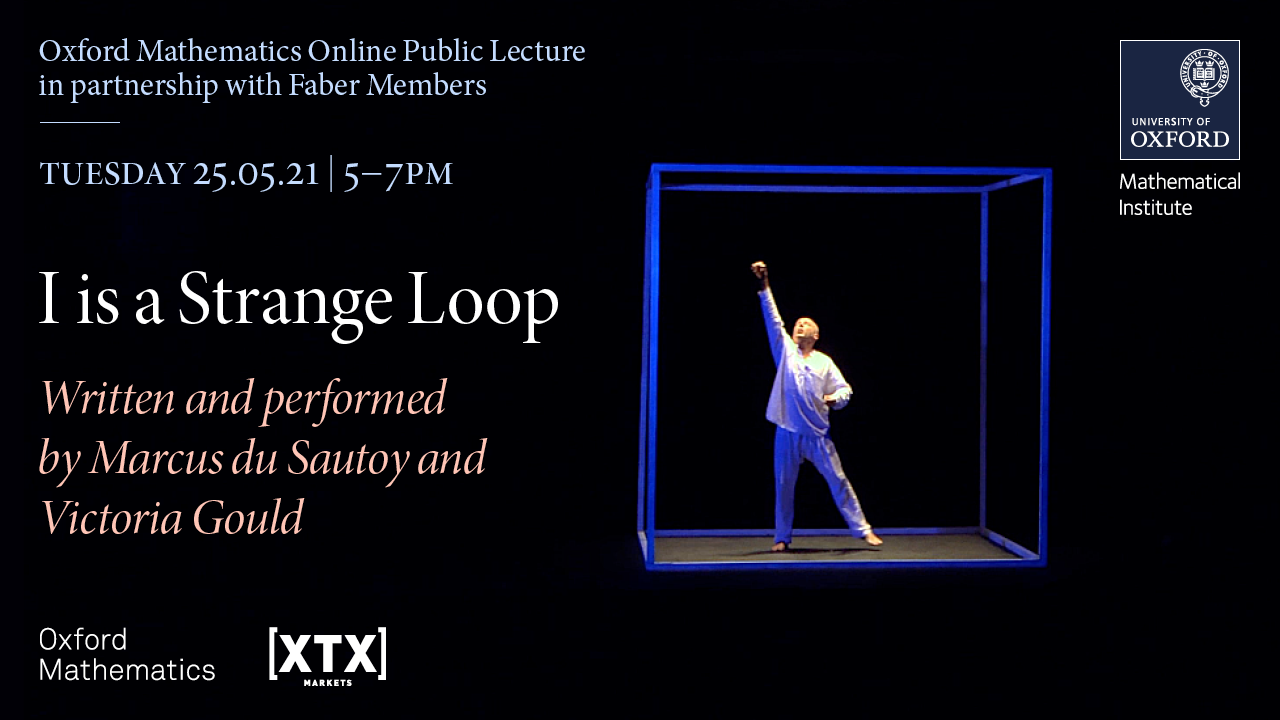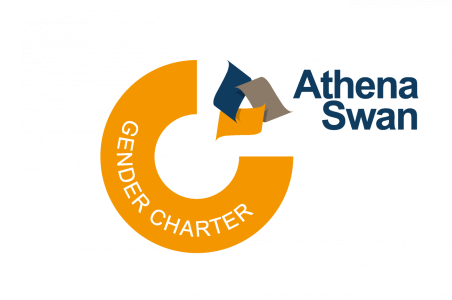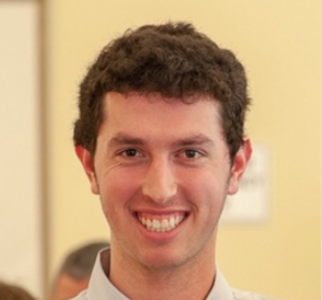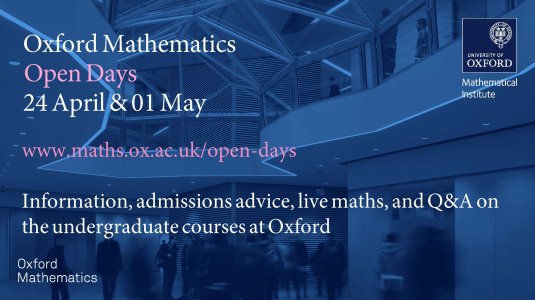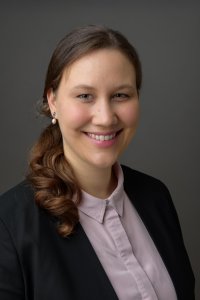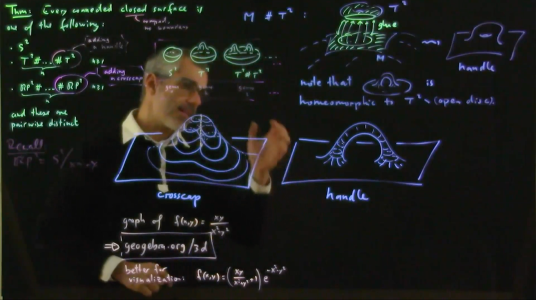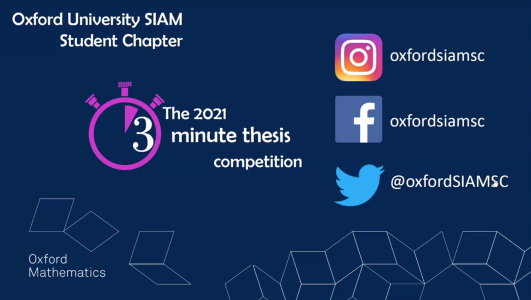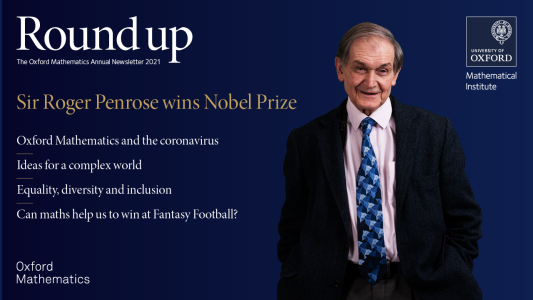Mathematical Institute Athena Swan Silver Award renewedThe Athena Swan Charter is a framework which is used across the globe to support and transform gender equality within higher education (HE) and research. In 2013 the Mathematical Institute received an Athena Swan Bronze Award for its work in addressing the issue of gender equality in its subject and working environment and, as a result of our work over the next four years, in 2017 we received the Silver Award. This year that Silver has been renewed and reflects the work put in as we strive for gender equality in a subject that, while predominantly still male, is becoming more balanced. What have we done? - We have Increased gender diversity across most student/staff groups, with female postgraduate numbers almost doubling. Given that these are the faculty of the future, In Oxford and elsewhere, this is very encouraging. We will continue to work on providing an environment that encourages those students to continue to progress in their careers. - We are pleased with the ongoing success of our recent, prestigious Hooke and Titchmarsh Postdoctoral Research Fellowships, which attract a high number of women and provide an exceptional springboard into an independent academic career. Charters such as Athena Swan work best when they make you think about what you do rather than being an end in themselves. That has been perhaps the most successful part of Athena Swan for us. We are integrating it into our strategic priorities and intertwining it with, for example, our Race Equality action plan.. Mathematics is a subject that had a lot of ground make up, but we and the wider mathematical world are making meaningful progress. Read more about our plans here.
|
|
Endre Suli elected Fellow of the Royal SocietyOxford Mathematician Endre Süli's work is concerned with the analysis of numerical algorithms for the approximate solution of partial differential equations and the mathematical analysis of nonlinear partial differential equations in continuum mechanics. Born in Yugoslavia, he was educated at the University of Belgrade and did his graduate work as a British Council Scholar at the University of Reading and at St Catherine’s College, Oxford. He received his doctorate from the University of Belgrade in 1985. Endre is a Professor of Numerical Analysis at the University of Oxford and a Fellow of Worcester College, Oxford. Oxford Mathematics now has 29 Fellows of the Royal Society among its current and retired members: John Ball, Bryan Birch, Martin Bridson, Philip Candelas, Marcus du Sautoy, Artur Ekert, Alison Etheridge, Ian Grant, Ben Green, Roger Heath-Brown, Nigel Hitchin, Ehud Hrushovski, Ioan James, Dominic Joyce, Jon Keating, Frances Kirwan, Terry Lyons, Philip Maini, Vladimir Markovic, Jim Murray, John Ockendon, Roger Penrose, Jonathan Pila, Graeme Segal, Martin Taylor, Ulrike Tillmann, Nick Trefethen, Andrew Wiles, and Endre himself of course. |
|
Zachary Chase shares Danny Lewin Best Student Paper Award 2021 from SIGACTThere are plenty of awards and prizes for senior mathematicians and scientists. But just as important, and maybe more so, are the awards for those just starting out. SIGACT (Special Interest Group on Algorithms and Computation Theory) is an international organisation that fosters and promotes the discovery and dissemination of high quality research in theoretical computer science. The Danny Lewin Best Student Paper award is presented by SIGACT each year at the ACM Symposium on Theory of Computing. Oxford DPhil Mathematician Zachary's winning paper is entitled “Separating Words and Trace Reconstruction.” A deterministic finite automaton is one of the most basic computational models in theoretical computer science. Telling two strings apart is one of the most basic computational tasks. In this paper, progress is made on an old problem of how efficiently one can tell two strings apart with a deterministic finite automaton. The proof methods surprisingly involve complex analysis and connections to other fundamental problems. The 2021 SIGACT Symposium will take place online from 21-25 June. |
|
Oxford Mathematics Open Days 24th April and 1 MayStudy Maths & describe the world. Mathematics underpins so much of our understanding of our world, whether it be its close relationship with the other Life Sciences or its wider influence on such things as how cities grow or how social media networks operate. At Oxford Mathematics Open Days you'll get a real sense of where a maths degree can take you. Indeed, as well as Maths you may also want to consider our joint schools in Maths and Statistics, Maths and Computer Science and Maths and Philosophy. These events will be online-only, with live broadcasts, pre-recorded content, and question-and-answer sessions with our tutors and current students. No registration is necessary. |
|
Bernadette Stolz awarded the 2021 Anile-ECMI PrizeThe Anile-ECMI Prize is given to a young researcher for an excellent PhD thesis in industrial mathematics successfully submitted at a European university. It was established in honour of Professor Angelo Marcello Anile (1948-2007) of Catania, Italy and consists of a monetary prize of 2500 Euros and an invitation to give a talk at the ECMI 2021 conference on Wedneday 14 April. In her DPhil (PhD), Bernadette investigated the use of topological data analysis for biological data. She developed methods to quantify the unique features of tumour blood vessel networks. Using persistent homology on experimental data from different imaging modalities, she validated known treatment effects on the networks and showed how the effects of radiation treatments alter the vascular structure. In her thesis, Bernadette further applied persistent homology to functional networks from neuroscience experiments. To overcome computational challenges that are a major limitation in applications of persistent homology to real-world data, she researched the use of local computations of persistent homology and her results indicate that these can be used for outlier-robust subsampling from large and noisy data sets. In addition, she demonstrated that such computations can detect points located near geometric anomalies in data sampled from intersecting manifolds. This work has recently been published in Proceedings of the National Academy of Sciences of the United States of America (PNAS). In her current postdoc at Oxford Mathematics' Centre for Topological Data Analysis, Bernadette is looking at applying persistent homology to quantify the output from mathematical models of angiogenesis. |
|
The many faces and hands of Online Student LecturesIt is a cliche that crises create opportunities. But they certainly demand innovation (and a lot of hard work). In Oxford Mathematics, in line with many others departments and universities, we have had to switch from in-person teaching to online in most cases. This has been 100% the case in terms of undergraduate lectures which normally take place in large lecture theatres where a whiteboard, a marker pen (or two or three) and a mathematician take centre stage. However, the online world is a much more varied place. Lectures tend to be shorter (though the courses are the same length), some lecturers write as they go using tablets while some use pre-prepared slides. Some are in shot, some are not. However, as you can see from the image above and the lecture below, some lecturers, in this case André Henriques (and also Artur Ekert in other lectures), are trying different approaches, taking advantage of latest technologies. The lightboard is not new, but this might be its teaching moment. Then again, the important thing is that the teaching is up to scratch. You can judge for yourself via the lecture below. You can also watch a range of student lectures on our YouTube channel as we show what we do and the increasing variety of ways we do it.
|
|
The Oxford SIAM Student Chapter 3 Minute Thesis CompetitionPostgraduate students are mathematics' future.
The Oxford University Society for Industrial and Applied Mathematics Student Chapter 3 Minute Thesis Competition saw 10 of our postgraduates present their latest research to a panel of our judges. Topics included Langland's Grand Unified Theory; Quantum irreversibility; and using magnets and maths to deliver stem cell therapy. You can watch the competition via the video below.
|
|
One Term in 5 MinutesTo gain an insight in to mathematical student life under lockdown, we asked Oxford Mathematics and St Peter's College 2nd Year Undergraduate Matt Antrobus to provide us with one-minute updates over the course of last term. So he did in a very personable and honest way, describing the maths he is doing, how he is doing it and how much work is involved. Matt also reflects on the stark fact that over half his time in Oxford has been under the cloud of Covid. You can watch all five films by scrolling through our Twitter, Facebook or Instagram pages.
|
|
Round up: the Oxford Mathematics Annual NewsletterRound up, the Oxford Mathematics Annual Newsletter, is a calculated attempt to describe our lives, mathematical and non-mathematical, over the past 12 months. From a summary of some of our research into the Coronavirus to a moving tribute to Peter Neumann by Martin Bridson, via articles on diversity, fantasy football and of course our Nobel Prize winner (pictured), it throws a little light, we hope, on what we did during the year that was 2020. The Newsletter goes out to over 12,000 Oxford Mathematics alumni around the world and to anyone else who may be interested of course. Arguably the most expressive part of the Newsletter is a wordless photo montage. Why not have a look? |


